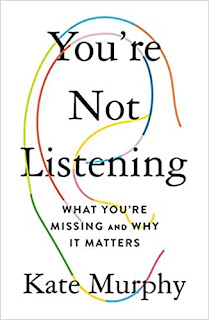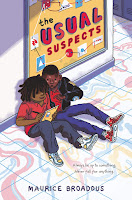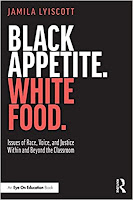I spent two days with retired teachers (of 20 years!), and they asked questions about last school year. All the angst appeared again. All summer, I've vacillated between wanting to write it all out - to get it out - and never wanting to speak of it again.
This is not a typical post of mine. We went to see family in Michigan, and we talked a TON. It refreshed the idea in my mind that I needed to document more from this past school year, now that I have one week left before the new one begins. I had pushed to the back of my mind some of the things they asked about, and the trauma of it came back again.
Hubby's sister and brother-in-law have been retired for about twenty years now. They didn't even know what a rubric was when I met them twelve years ago, so to try to explain to them about all the crud we went through last year was a hefty task. All summer I've wondered about writing down some snippets. I've decided I should, for a couple of reasons. 1) I feel it needs to be documented, or people may forget. I don't want the past year to be washed away like it was nothing. 2) I think it will help me move forward into this year, knowing all we did last year. Knowing (??) it can't be worse than last year... right?!?
So... in no particular order, I'm going to put the negatives first and the positives at the end.
Memories I've pushed to the back of my brain:
First week of school (first week of September - latest we've started in years)... All I set up for the year was what was going to be seen behind me in my screen. "I'm here for you," "Black Lives Matter," my LGBTQ ally flag... later I added their photos - on a big house (chart paper) and on an E, L, and A for my three ELA classes. I had a standing desk of sorts, and I played music when they came into the Zoom, greeting each student by name. Once attendance and my "show" were done, I waved like crazy to say goodbye, and ended the Zoom. Cried. Opened another Zoom. We had "typical" days - classes straight through - via Zoom - just like the community wanted. I smiled and sang and was encouraging (according to one student), and I cried each time I ended a Zoom. During team time, at least one of us was crying each day. We couldn't hug each other. We couldn't eat without shields in front of us. On that Friday, at home, I bawled my eyes out and crawled up into a ball, thinking that the past week was worse than my divorce.
Into the year, kids stopped showing up to Zoom. Others would show up, but not be there when we called on them, or asked for them in the chat. A few would be there, cameras on, nodding at times, and we could see the videos being played on their computer reflected on their faces. Those few didn't answer us when we talked to them either. Two students left the district, even though we'd had myriad meetings as to how we (and parents) could help them succeed better. Rooms were quiet. Hallways were quiet. Teachers were in their rooms putting on shows so we could compete with movies and YouTube and texting. I tried different places in the room, but it always felt wrong. Staying in one place for 80 min at a time really wore on me and my body.
Hybrid came. I had my six feet of space at the front of the room, but who was I kidding? I wasn't moving around the room except to spray the tables at the end of each class. I was tethered to the laptop, as that's where more than half of my students were. I learned how to project the students at home on the screen, spotlight my document camera or a student who was sharing, use my camera for kids at home to see me or to see the kids in the classroom, to show this but not that, to have two screens so I can see the kids at home and what I wanted to share with everyone... I became a master at technology. And I didn't cry when it all quit on me. I just breathed, and restarted, hoping we didn't lose anyone and hoping the kids behaved on Zoom while I was kicked out.
I remember being grilled when one staff member tested positive and was home sick. Why did I feel as if I'd done something wrong? I didn't get sent home to quarantine, because I was scared of getting sick and followed the rules. I went home paranoid, and the next day was grilled by a coworker of mine - Why didn't I tell them she ate lunch with us, too? Blame was prevalent. Blame for miscommunication was the biggest. Communication was the worst it'd ever been in my time teaching. I had a student come to my first class one day, wondering where she sat. I had no clue she'd be coming in, and I had to call the office to be sure she was allowed to be there. Two students came in on the days they weren't supposed to, because their siblings in elementary school were in full time, so why weren't they? Kids were here in the AM, then sent home for whatever reasons in the PM. Attendance was "present," or "here but remote" or "absent," and we never knew who would be in front of us in the room and who would be on the computer, and who would skip a class or two.
It was tough to take mask breaks when we had the kids at home on Zoom, too. One of my classes had kids at home that wanted to be socializing in a breakout room during our mask break, but I never got the timing right, and they'd either be waiting for me or we'd be waiting for them. Of course, there was one who never wanted to come back in the school, so they'd drag their feet (and I had to stand at the door to be sure they got in and the door closed behind us).
I felt like I'd be wasting someone's time every class - either the at-home or in-the-building kids. If I had to explain something to the in-the-building kids, the at-home kids would be bored. After I gave directions, I'd have to adjust them a bit for the at-home kids, so the in-the-building kids would be waiting for me to help them, as they were ready to go. It really was teaching two classes at one time. I feel as if they all wanted (if not needed) my attention, as well.
Kids would use their phones to check the time. All the time. They were truly stuck like glue to them - in their backpacks or in their pockets.
I was more strict than I've ever been. I needed to be - for my own sanity. I didn't like it, but it worked better than not following through, and I was being fair, at least.
New worries / what's happening elsewhere:
Parents attacking staff over mask mandates ("Baffling" is a great word to describe this one.)
Why Does Your Child's Right to Unmask Usurp My Child's Right to a Safe School?
Anti-mask grown-ups obscure every lesson we ought to teach kids about a pandemic...
Texas and Georgia - teachers and students aren't ALLOWED to wear masks?!?!
I'll try to put these aside... Just teach to the best of my ability... Stay out of the drama of the school board meetings... Do what I'm expected to do... Care for the students.
Lovely memories:
My students surprised me with a "thank you" on Zoom on January 13th when we were all remote due to another "outbreak." All but four students were in on the text chain, and of course, I cried.
When we were all remote, I learned to open breakout rooms for MORE than the number of students in class. That way, when I needed to cry or scream, I could go into my own breakout room (instead of being in the "main" room). Also, I could cry or scream or yell or whooop in the hallways during passing periods, due to no one being in the hall...
I could cry in my room at any time of the day, and no one would know. In a "typical" year, we have a very hard time finding a space all our own for any type of peace. Quiet was the norm this past year. I'm going to want some of that this next school year.
When the kids came to the school in person, I had to stop crying. That was actually helpful. I also learned to enjoy the moments as they came. Just to take my time and soak up all the craziness happening.
On our last fully-remote day, Sam (one of my students) had his dog howling for us once again. I loved seeing the kids so happy with their pets. Sometimes when I read aloud, some would sit there and pet their dogs or cats.
One time in May I opened the wrong Zoom (well, more than one time, but this is one specific story). I was waiting for the two kids at home. The office called and said one of the two were trying to get in. Three min or so into class, one of the two used the Jamboard (we were using Jamboard for our warm up fun questions) to tell me to "open the Zoom, please!" And that's how I knew I had opened the wrong one. Clever kids!
None of the kids ever "forgot" anything at their locker (and were gone for five minutes), because they used backpacks. That was sweet.
I only had to tell two students daily to keep their mask over their nose. Two - out of seventy-something. They knew it was a non-negotiable.
I got some of the sweetest letters at the end of the year. They've got a spot in my scrapbook, of course.
I. Learned. So. Much. Lessons I'm going to take forward into the last years of my teaching. Lessons that will help me enjoy teaching - and my home - even more. Year 27 begins for me tomorrow. Ready or not...














































